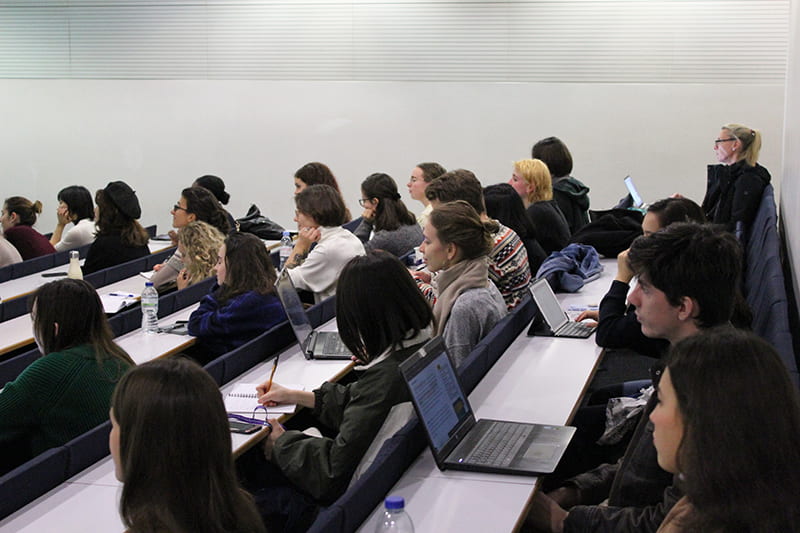Top 5 Skills For Careers in the Arts
By skye.aitken, on 27 November 2019
 Written by Rachel Garman, Careers Information and Research Officer at UCL Careers.
Written by Rachel Garman, Careers Information and Research Officer at UCL Careers.
UCL Careers held an event about Careers in the Arts on 15th November 2019 as part of our Museums, Arts and Cultural Heritage Themed Week.
Our panelists were:
Joane Filipe: Exhibition Designer & Creative Producer at InterestingProjects
Chloe Godman: Gallery Manager at Open Gallery
Julia Padfield: Press & Publications Assistant at Shakespeare’s Globe
Anna Testar: Assistant Curator at Royal Academy of Arts
As part of a really interesting evening, these are some of the most useful skills to develop for your career in the Arts from our panelists’ perspective:
1. Be Proactive
It can be tricky to start a career in the arts, so be proactive in seeking out opportunities to gain experience or create your own. Start a blog, put on exhibitions of your or your friend’s work, volunteer at galleries and apply for internships – these are all great ways of building up your experience, and you’ll make connections at the same time. You don’t have to just work within the arts – you’ll gain transferable skills no matter what work you do and don’t be too concerned if your career isn’t linear, as you’ll be able to spin your experience and skills back to your arts work. Say yes to anything interesting that comes your way and take the time to work out what you’re good at.
2. Attention To Detail
You may be writing exhibition guides, arranging the logistics of an exhibition tour, communicating with the public through social media, licensing images, tracking invoices and payments to your business, or many other tasks you will be asked to complete in the course of your career – attention to detail is crucial in maintaining a high standard of work, especially in an industry that doesn’t have much money to spare on mistakes.
3. Organisation And Multitasking
Organisational skills are very useful to have in any sector, and the arts is no exception. You may need to juggle several projects (for example planning several future exhibitions) at the same time, prioritise conflicting deadlines, and keep a careful track of budgets, so the ability to multitask and being methodical prioritising your work will be crucial.
4. People Skills
Whether you work with customers and clients or colleagues, in sales or in a press office, as a curator or designer, you’ll need people skills to succeed. You might need to be persuasive to make a sale or negotiate a loan of an artwork for an exhibition, to be collaborative while working on a team project, or engaging while talking to a school group, but working effectively with others is key. You can also use your people skills to build up a network of useful contacts across the industry, which may prove invaluable in your next career move.
5. Passion
The arts is a competitive sector, so having a passion and knowledge of your subject may allow you to stand out next to another equally-qualified candidate – you don’t need to know everything about a topic, but showing enthusiasm at interview can certainly impress employers. Your enthusiasm may also help to create relationships with other professionals (they may remember you when a job becomes available), and can help sustain you through the frustrations of job hunting and through a career where high pay is rare. Indulge your passion by reading, going to exhibitions or the theatre, listening to music – the more you build connections between different artistic creations the broader your knowledge will be, which will only help your work. Conveying your enthusiasm to those consuming the arts can be the most rewarding part of your job.
If you’d like to explore more, blogs and resources from the Museums, Arts and Cultural Heritage Themed Week can be found on the UCL Careers website.
 Close
Close

